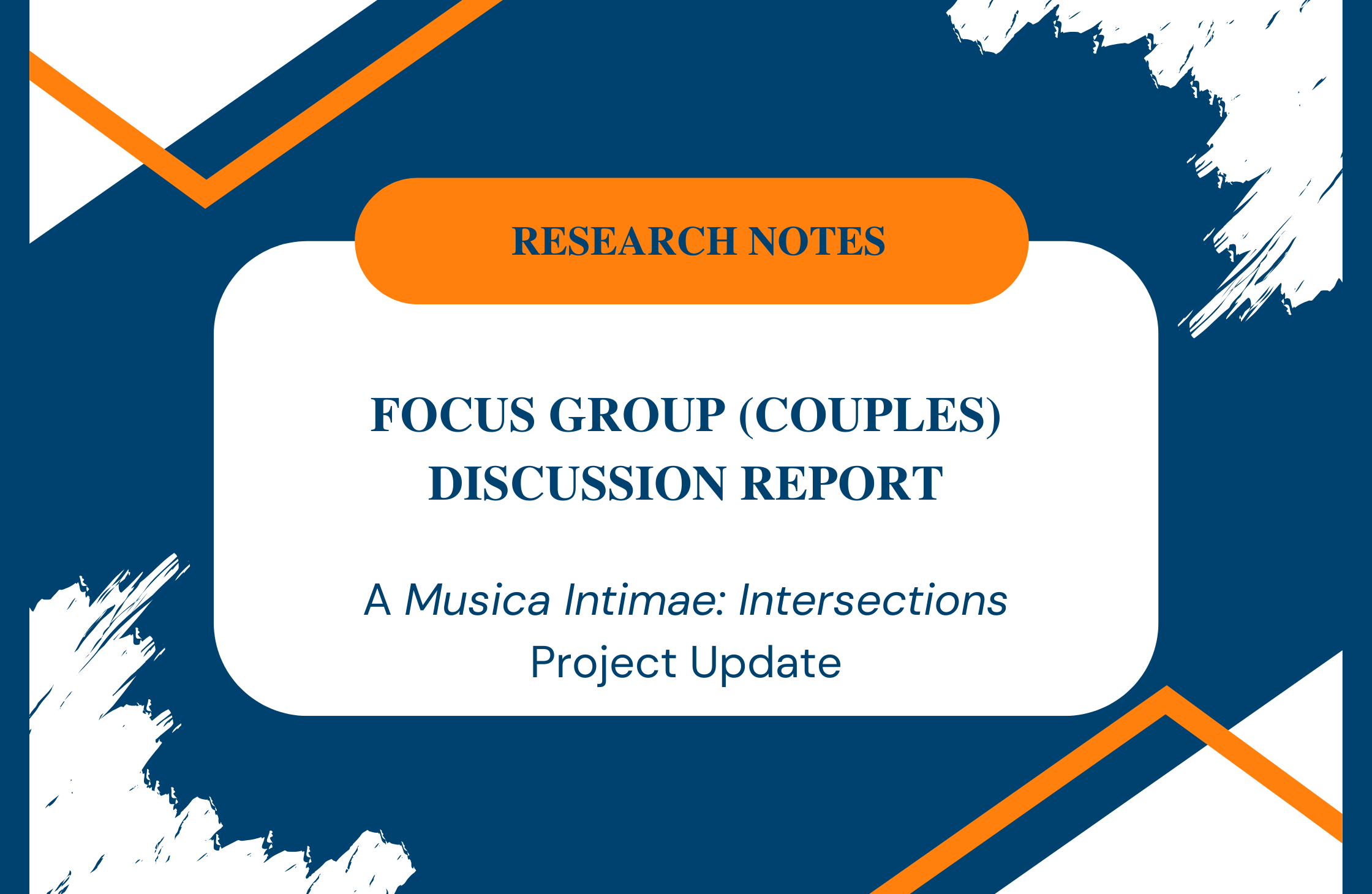Navigating Love Across Cultures: What We Heard at Our July Focus Group
On 6 July 2025, four couples joined us at the Aliwal Arts Centre for a focus group conversation. This was part of our ongoing Musica Intimae: Intersections project, which seeks to understand how couples in Singapore navigate the daily realities of living at cultural and religious crossroads.

On 6 July 2025, four interethnic and interreligious couples joined us at the Aliwal Arts Centre for a focus group conversation. This was part of our ongoing Musica Intimae: Intersections project, which seeks to understand how couples in Singapore navigate the daily realities of living at cultural and religious crossroads.
The session helped us test our early findings from interviews, and to hear—directly from couples—how they approach common challenges in their relationships. Over an afternoon of conversation and structured activities, participants shared their strategies, dilemmas, and priorities in a spirit of honesty and warmth.
How the Session Worked
We guided couples through two types of exercises:
- Exploring approaches. For each of seven relationship challenges (such as communication differences, family expectations, or divergent cultural practices), couples discussed three possible ways to respond. They then indicated where their own approach lay—whether close to one option, balanced across several, or somewhere in between.
- Ranking what matters most. Each participant then distributed points across the themes, showing which issues felt most significant in their daily lives. This helped us see not only how couples approached challenges, but also which challenges they felt mattered most.
What Couples Told Us
A few consistent patterns emerged:
- Joint action over avoidance. Across many themes, participants preferred to tackle issues together rather than sidestep them. Avoidance strategies, like not discussing sensitive topics, were generally less favoured.
- Societal and family pressures loom large. Challenges from outside the couple—such as navigating discrimination, wedding customs, or family expectations—were ranked as the most pressing. These external pressures often weighed more heavily than differences in belief or practice within the relationship itself.
- Religion: unity or “not a big issue.” While some couples carefully discussed how they might raise children in different religious traditions, others felt religion simply wasn’t central to their relationship. The most agreement between partners came in this area, suggesting that couples often achieve clarity by the time such questions arise.
- Cultural practices spark variety. Approaches to festivals, rituals, or traditions were the area where couples differed most internally. Some felt strongly about creating shared rituals, others valued flexibility, and still others chose complementary but separate practices.
Overall, couples showed thoughtfulness and intentionality, often developing a consistent style: some leaned towards pre-planning, while others placed trust in handling issues as they arose.
Why These Findings Matter
The insights confirm what we suspected from earlier interviews: that cultural and social pressures, rather than private differences of belief, are often the toughest hurdles for couples in Singapore’s diverse landscape. They also tell us that strategies built on partnership—working together as a team—feel more sustainable than those rooted in avoidance.
For our project, this means that the themes of societal pressures and discrimination, divergent cultural practices, and family expectations will take centre stage as we move into the next phase: a youth forum and a creative performance that translates these lived experiences into art.
Looking Ahead
By re-engaging couples in structured but open-ended dialogue, we gained a deeper picture of how real people navigate love across cultural and religious divides. These stories remind us that while each couple is unique, the wider patterns of support, challenge, and resilience can teach us all.
Our team will now bring these insights forward into creative and community spaces—so that the wider public can listen, reflect, and join the conversation.
Musica Intimae: Intersections is supported by the Ministry of Culture, Community and Youth, Singapore, through the Harmony Fund.

